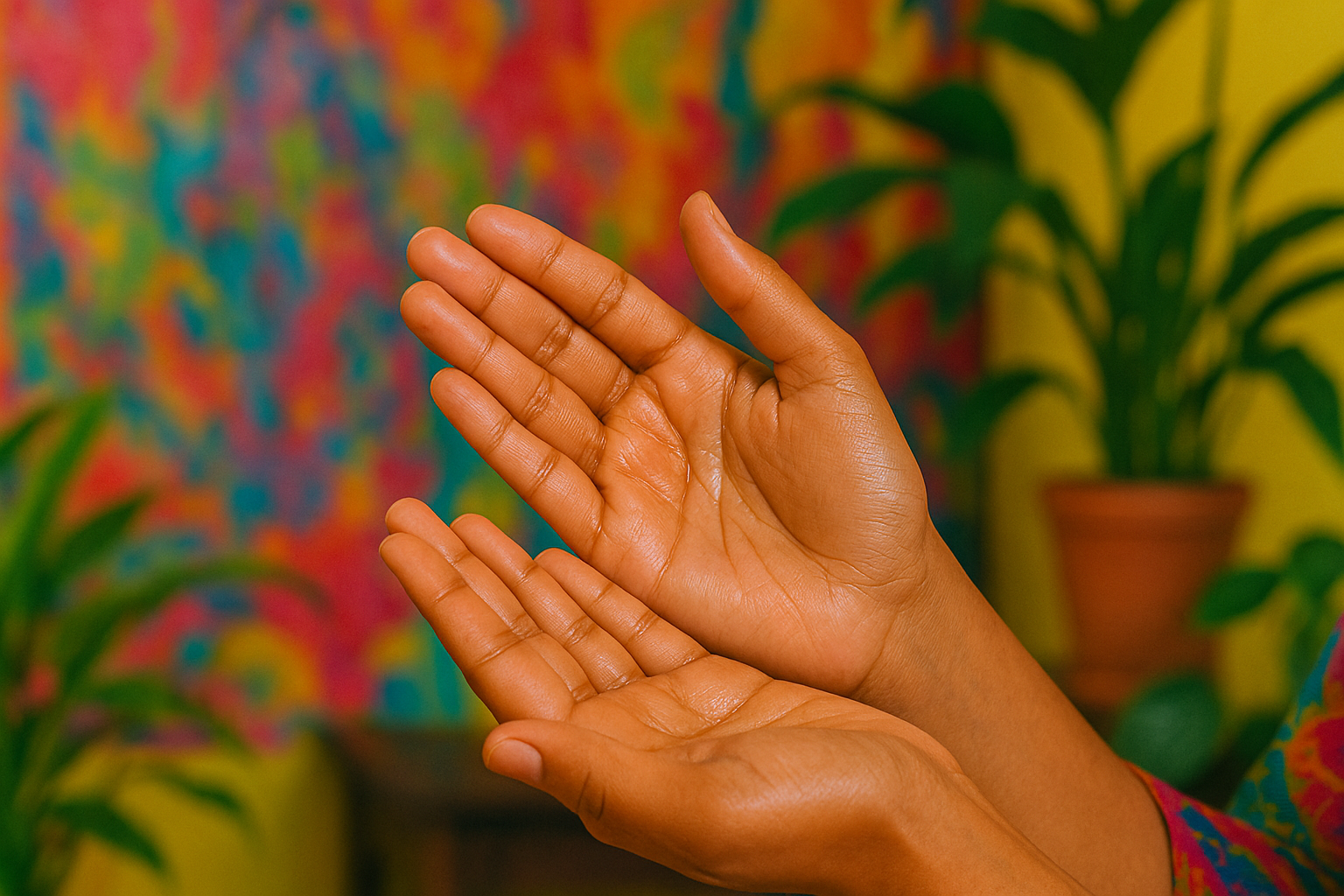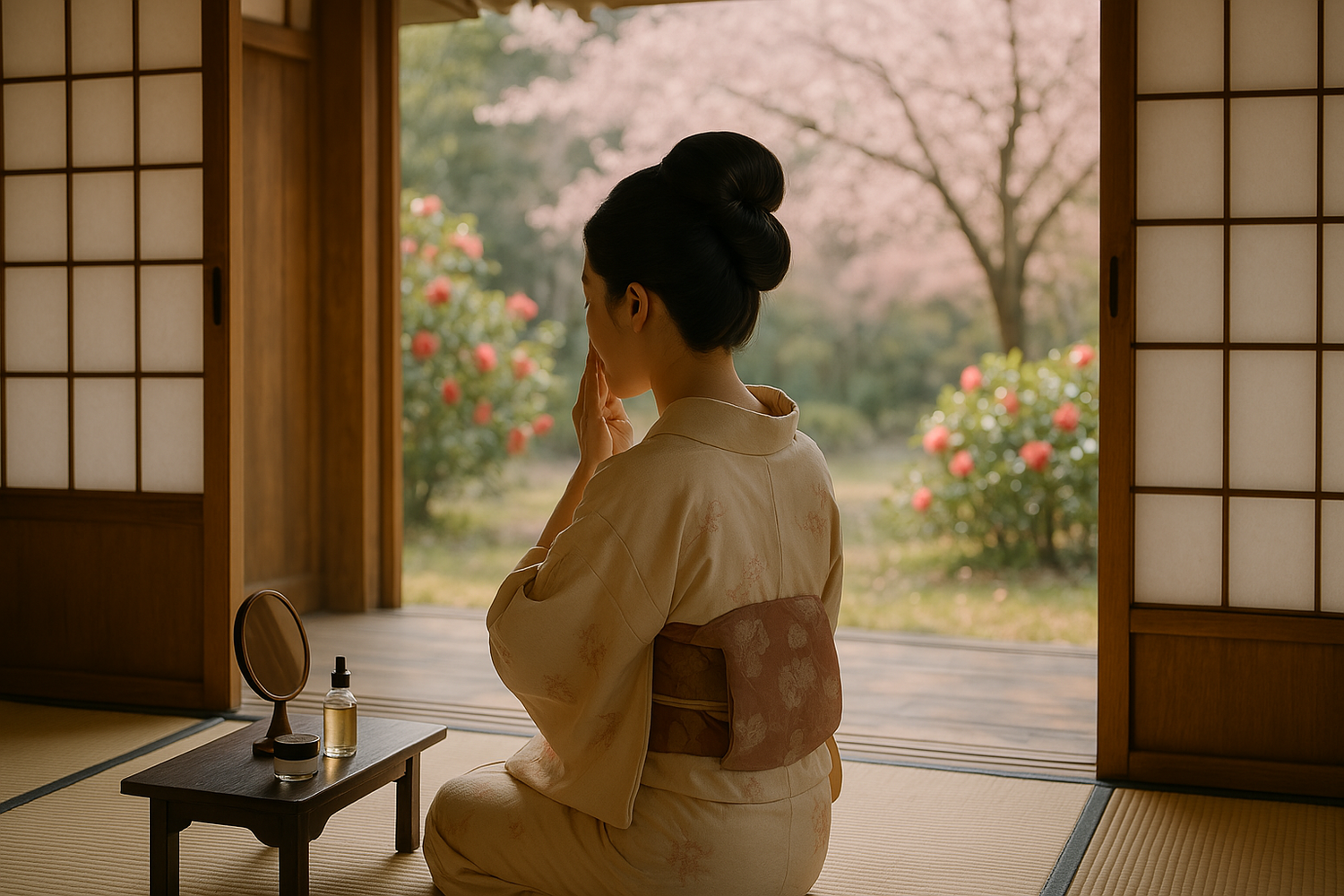
Timeless traditions meet modern simplicity
At Yin + Yang, we believe beauty thrives in balance. From nourishing oils to ancient remedies, we weave timeless rituals into modern care, reflecting the wisdom of nature.
AFRICAN BEAUTY PRACTICES
-
Ancient African beauty practices embody a rich heritage of rituals + ingredients rooted in holistic wellness, cultural expression, + natural elements. Revered for their ability to nurture both external beauty + internal well-being.
-
Black Castor Oil
Serived from roasted castor beans native to tropical Africa, holds deep cultural significance in beauty, medicine, + rituals. It was used for spiritual cleansing, protective rituals, + scalp massages, believed to promote thick, healthy hair + overall well-being.
-
Shea Butter
Extracted from the nuts of the shea tree in West Africa, has been passed down through generations as a natural moisturizer. It protected skin from harsh climates, preserved youthfulness, + treated skin conditions. Shea butter was also used in rituals for newborns + life milestones.
-
Hibiscus
Also known as the "flower of hair care," + used to enhance hair health, prevent graying, + symbolize renewal in rituals. Its petals were infused into oils or consumed as tea for detoxification + holistic rejuvenation, blending beauty with inner wellness.

AYURVEDA
Ayurveda is a holistic system of medicine from India that promotes health by balancing the mind, body, + spirit. Central to Ayurveda are the doshas—Vata, Pitta, + Kapha—energies shaped by the five elements (air, fire, water, earth, + space). These energies guide physical + emotional well-being, influencing health + imbalances.In Ayurveda, beauty + hair care emphasize nourishing the internal + external self to achieve harmony. Treatments are tailored to one’s dosha (Prakriti), addressing imbalances like dryness, oiliness, or thinning hair. Scalp health is key, with practices like regular oiling to restore moisture, reduce frizz, + support hair growth.
INDIGENOUS AMERICAN TRADITIONS
-
Indigenous communities across the Americas share deep spiritual beliefs, holistic care practices, + reverence for nature. Beauty rituals intertwined with storytelling + ceremonies fostered harmony with the environment, inspiring modern self-care rooted in gratitude + respect for nature.
-
Cinnamon
Cherished for its aromatic + purifying qualities. Used in cleansing ceremonies + healing rituals, it symbolized renewal + vitality. Its warming + uplifting properties were applied in ointments to treat skin ailments, while cinnamon oil’s antimicrobial effects protected the skin from infection + inflammation, blending beauty with wellness.
-
Ancho Chili Powder
Derived from dried chili peppers, was not only a culinary staple but also a beauty + health ally. The capsaicin in chili peppers stimulated blood flow, detoxified the skin, + was believed to cleanse the body of impurities. Chili peppers held symbolic meaning in many rituals, representing strength, vitality, + protection, aligning physical care with spiritual empowerment.
-
Primrose Oil
Extracted from the evening primrose plant native to North America, was a versatile remedy in Indigenous traditions. Known for its anti-inflammatory + hydrating properties, it was used as a poultice to soothe skin irritation + heal wounds. When consumed, primrose was believed to balance hormones, support systemic wellness, + promote radiant skin + hair from within.

JAPANESE CULTURE
Also known as Tsubaki oil, it has been central to Japanese beauty for centuries. Symbolizing beauty + refinement, it was also used in rituals to harmonize mind + body. Renowned for its lightweight, hydrating properties, it cared for skin + hair, leaving them radiant, resilient, + protected from environmental stressors. Geishas relied on it to maintain their iconic complexions, benefiting from its deep absorption + soothing antioxidants. Tsubaki oil embodies the purity + timeless elegance of Japanese beauty traditions.
MEDITERRANEAN BEAUTY RITUALS
Mediterranean beauty rituals are rooted in ancient traditions, emphasizing simplicity, purity, + nutrient-rich, locally sourced ingredients. Shaped by the region’s natural abundance, these rituals intertwine beauty with wellness + a deep connection to nature.
In ancient Greece + Rome, beauty was an extension of well-being, with olive oil + honey at the core of self-care. Olive oil, "liquid gold," moisturized skin, strengthened hair, + shielded against stressors, symbolizing luxury + a bond with nature. Honey, the "nectar of the gods," offered hydrating, healing properties, enhancing radiance + soothing skin. Together, these ingredients embodied the Mediterranean ethos of balance, blending beauty, wellness, + nature.
The Romans emphasized enhancing natural beauty through balance, viewing skincare as self-care that fostered relaxation + well-being. They believed outward appearance reflected inner health. Like the Greeks, they valued harmony + moderation, favoring simple, high-quality products aligned with their ideals of refinement.
TRADITIONAL CHINESE MEDICINE (TCM)
-
Takes a holistic approach to health, emphasizing the interconnectedness of the body, mind, + spirit. At its core is the balance of Yin + Yang—complementary forces of energy, nature, + life. This harmony maintains health + prevents illness by aligning internal systems with the external world.
-
Qi (vital energy) + the Five Elements (Wood, Fire, Earth, Metal, Water) guide diagnosis + treatment. Qi flows through meridians, + its balance is vital for well-being. Physical or emotional imbalances are addressed through the Five Elements framework + guides tailored treatments. Yin + Yang highlights balance between activity + rest, warmth + coolness.
-
In beauty + skincare, harmony is prioritized over masking symptoms. Addressing imbalances—like dryness, excess oil, or inflammation—restores the skin’s natural equilibrium. TCM-inspired rituals use botanicals with multifunctional properties, reflecting the belief that internal harmony creates external vitality.




